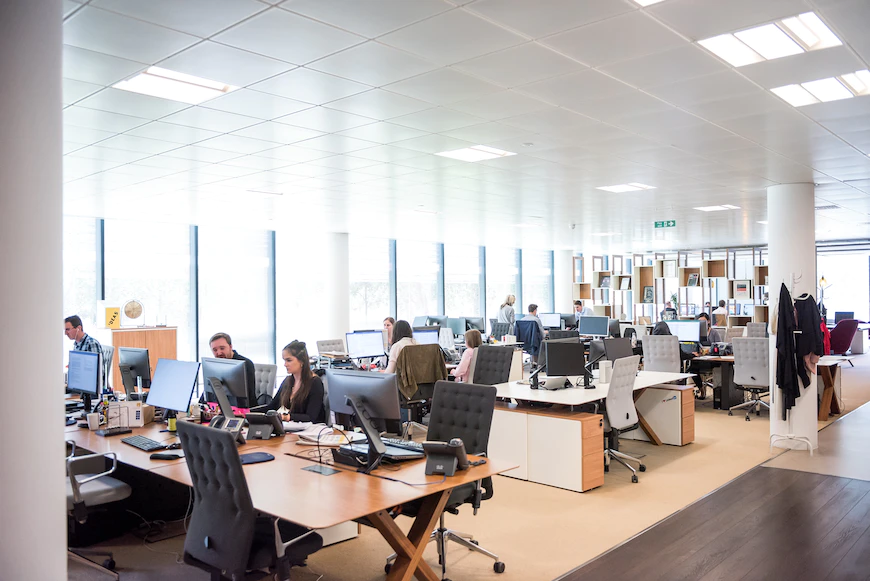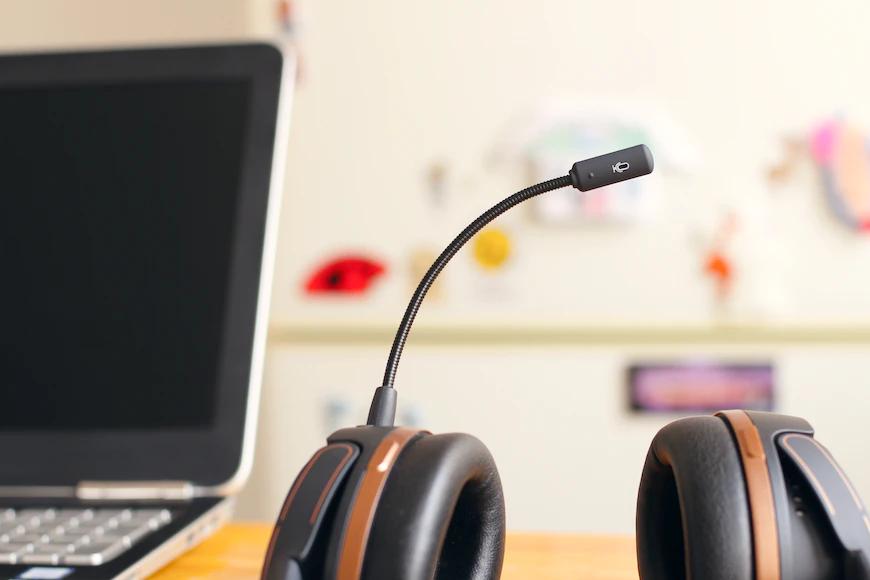The best medical answering services are essential in the healthcare industry, providing a wide range of critical services to providers and patients. These services are designed to improve patient care, increase efficiency, and reduce costs, making them a valuable resource for healthcare practices of all sizes. With 24/7 availability, triage services, appointment scheduling and reminders, after-hours support, prescription refill requests, bilingual services, and customizable options, medical answering services offer numerous benefits to healthcare providers and patients.
The vital role that best medical answering services play in the healthcare industry cannot be overstated, and their importance will continue to grow in the years to come. Medical answering services can handle calls for multiple healthcare providers, providing emergency response, live operator, and virtual receptionist services, which can help reduce staffing costs and improve efficiency. With customized reporting and analytics, healthcare providers can also identify areas for improvement and make informed decisions to provide personalized patient care. Ultimately, medical answering services can help improve patient satisfaction, leading to increased loyalty, better patient outcomes, and a positive impact on healthcare providers’ reputations.
Medical answering services are available 24/7.
One of the most significant benefits of medical answering services is that they are available 24 hours a day, seven days a week. This means patients can receive assistance anytime, even outside of regular office hours. This means that healthcare providers can provide better patient care and improve their practice’s efficiency, knowing that patients can always reach them.
They can provide triage services.
Triage determines the urgency of a patient’s medical condition and directs them to the appropriate level of care. Medical answering services can provide triage services, which can help patients get the care they need quickly and efficiently. Trained operators can ask a series of questions to determine the severity of the patient’s condition and advise on the next steps.
They can handle appointment scheduling and reminders.
Medical answering services can also handle appointment scheduling and reminders, which can significantly benefit healthcare providers and patients. Operators can schedule appointments and send reminders via phone, text message, or email, reducing the number of missed appointments and improving patient satisfaction.
They can provide after-hours support.
Medical answering services can provide after-hours support for healthcare providers, ensuring patients can receive care even when the office is closed. Operators can answer questions, schedule appointments, and provide advice on non-emergency medical issues, helping to reduce the number of emergency room visits and improve patient outcomes.
They can handle prescription refill requests.
Medical answering services can also handle prescription refill requests, saving time and improving patient care. Operators can contact pharmacies on behalf of patients to request refills, eliminating the need for patients to wait on hold or visit the pharmacy in person.
They can provide bilingual services.
In a diverse society, bilingual services are essential for healthcare providers to communicate effectively with their patients. Medical answering services can provide bilingual services in multiple languages, allowing providers to offer care to patients who may not speak English as their first language.
They can be customized to meet specific needs.
Medical answering services can be customized to meet the specific needs of healthcare providers. Customization options may include call screening, call forwarding, and personalized greetings. Operators can be trained on specific protocols and procedures, ensuring that patients receive the best possible care.
They can handle calls from multiple healthcare providers.
Medical answering services are not limited to serving just one healthcare provider under HIPAA regulations. They can handle calls from multiple providers, making it a convenient option for healthcare practices with numerous physicians or locations. This can also help to streamline operations, as all rings can be directed to a single answering service rather than individual practices.
They can provide emergency response services.
Medical answering services can provide emergency response services, which can be crucial in life-or-death situations. Operators can dispatch emergency services to the patient’s location, providing vital assistance until emergency responders arrive. This can help to save lives and improve patient outcomes in emergencies.
They can offer customized reporting and analytics.
Medical answering services can also offer customized reporting and analytics to healthcare providers. Operators can track call volume, average response times, and other metrics to help providers identify areas for improvement and make informed decisions. This data can also help providers better understand patient needs and preferences, allowing them to provide more personalized care.
They can provide live operator services.
Medical answering services can provide live operator services, meaning patients can speak directly to a trained operator rather than a recorded message. This can be a significant benefit for anxious or overwhelmed patients, as it provides them with a human connection and personalized support.
They can offer virtual receptionist services.
Medical answering services can also offer virtual receptionist services, which can help reduce healthcare providers’ costs. Virtual receptionists can handle incoming calls, schedule appointments, and provide basic information to patients, freeing up staff members to focus on more complex tasks.
They can help to improve patient satisfaction.
Medical answering services can help to improve patient satisfaction by providing timely and personalized support. Patients who can reach a healthcare provider when they need assistance are more likely to feel satisfied with their care, leading to increased loyalty and better patient outcomes.
Conclusion
Medical answering services are essential in the healthcare industry, providing various crucial services to providers and patients. From 24/7 availability to appointment scheduling and reminders, prescription refill requests, and triage services, medical answering services can improve patient care, increase efficiency, and reduce costs for healthcare providers. By customizing services to meet specific needs, providers can ensure patients receive the best care and satisfaction. Explore our website to know more about our services.
Frequently Asked Questions
What exactly is a medical answering service?
A medical answering service is a third-party provider that offers a range of services to healthcare providers and patients, including appointment scheduling, prescription refill requests, triage services, and after-hours support.
How does a medical answering service work?
When a patient calls a healthcare provider’s office after hours or when lines are busy, the call is routed to the medical answering service. A trained operator answers the call and provides assistance based on the provider’s instructions.
Can a medical answering service handle calls from multiple providers?
Yes, medical answering services can handle calls from multiple healthcare providers, making it a convenient option for practices with numerous physicians or locations.
Is a medical answering service available 24/7?
Yes, medical answering services are available 24 hours a day, seven days a week.
How does a medical answering service ensure patient privacy?
Medical answering services are required to comply with HIPAA regulations and other data privacy laws. They use secure methods for transmitting and storing patient information to ensure confidentiality.
How are medical answering service operators trained?
Medical answering service operators receive specialized training in medical terminology, customer service, and data privacy regulations. They are also trained on specific protocols and procedures for each healthcare provider they serve.
Can a medical answering service provide emergency response services?
Yes, medical answering services can provide emergency response services. Operators can dispatch emergency services to the patient’s location, providing vital assistance until emergency responders arrive.
How can a medical answering service help improve patient satisfaction?
Medical answering services can help improve patient satisfaction by providing timely and personalized support. Patients who can reach a healthcare provider when they need assistance are more likely to feel satisfied with their care.
Can a medical answering service provide virtual receptionist services?
Yes, medical answering services can provide virtual receptionist services. Virtual receptionists can handle incoming calls, schedule appointments, and provide basic information to patients, freeing up staff members to focus on more complex tasks.
Are medical answering services affordable for small practices?
Yes, medical answering services can be a cost-effective solution for small practices. They can help to reduce staffing costs and improve efficiency, allowing courses to focus on providing high-quality care to patients.
How can medical answering services benefit small healthcare practices?
Medical answering services can benefit small healthcare practices by reducing staffing costs, improving efficiency, and providing essential services such as appointment scheduling, prescription refill requests, and after-hours support.
Are medical answering services HIPAA compliant?
Yes, medical answering services are required to comply with HIPAA regulations and other data privacy laws. They use secure methods for transmitting and storing patient information to ensure confidentiality.
Can medical answering services integrate with electronic health records (EHRs)?
Yes, many medical answering services can integrate with EHRs, allowing for seamless transfer of patient information between the two systems.
How much do medical answering services cost?
The cost of medical answering services varies depending on the provider and the services required. Many providers offer customized pricing plans based on the specific needs of each healthcare practice.
Can medical answering services handle billing and insurance inquiries?
Yes, medical answering services can handle billing and insurance inquiries, providing patients with assistance on their accounts and helping to reduce the workload for healthcare staff.
What types of healthcare practices can benefit from medical answering services?
Medical answering services can benefit a wide range of healthcare practices, including primary care physicians, specialists, dentists, and mental health professionals.
How quickly can medical answering services respond to emergencies?
Medical answering services can respond to emergencies quickly, dispatching emergency services to the patient’s location and providing vital assistance until emergency responders arrive.
How are medical answering services different from traditional answering services?
Medical answering services are specifically designed for the healthcare industry and are staffed by trained operators who are knowledgeable in medical terminology, procedures, and protocols. Traditional answering services may not have this specialized knowledge.
Can medical answering services provide patient education materials?
Yes, medical answering services can provide patient education materials on various topics, including disease prevention, treatment options, and medication management.
Can medical answering services provide remote patient monitoring?
Some medical answering services offer remote patient monitoring, allowing healthcare providers to monitor patient vital signs and other data remotely.
How can medical answering services improve healthcare providers’ productivity?
Medical answering services can improve healthcare providers’ productivity by handling routine tasks such as appointment scheduling and prescription refill requests, allowing providers to focus on more complex tasks and patient care.
How can medical answering services help reduce wait times for patients?
Medical answering services can help reduce patient wait times by providing efficient triage services and appointment scheduling, allowing healthcare providers to see patients more quickly and efficiently.
Can medical answering services handle calls for patients with disabilities?
Yes, medical answering services can handle calls for patients with disabilities, providing specialized services such as TTY/TDD relay services and other communication aids as needed.
Can medical answering services provide telemedicine services?
Some medical answering services offer telemedicine services, allowing patients to receive virtual consultations and care from healthcare providers.
How can medical answering services help improve patient outcomes?
Medical answering services can help improve patient outcomes by providing timely and personalized support, ensuring patients receive the care they need when needed. This can lead to better health outcomes and increased patient satisfaction.




